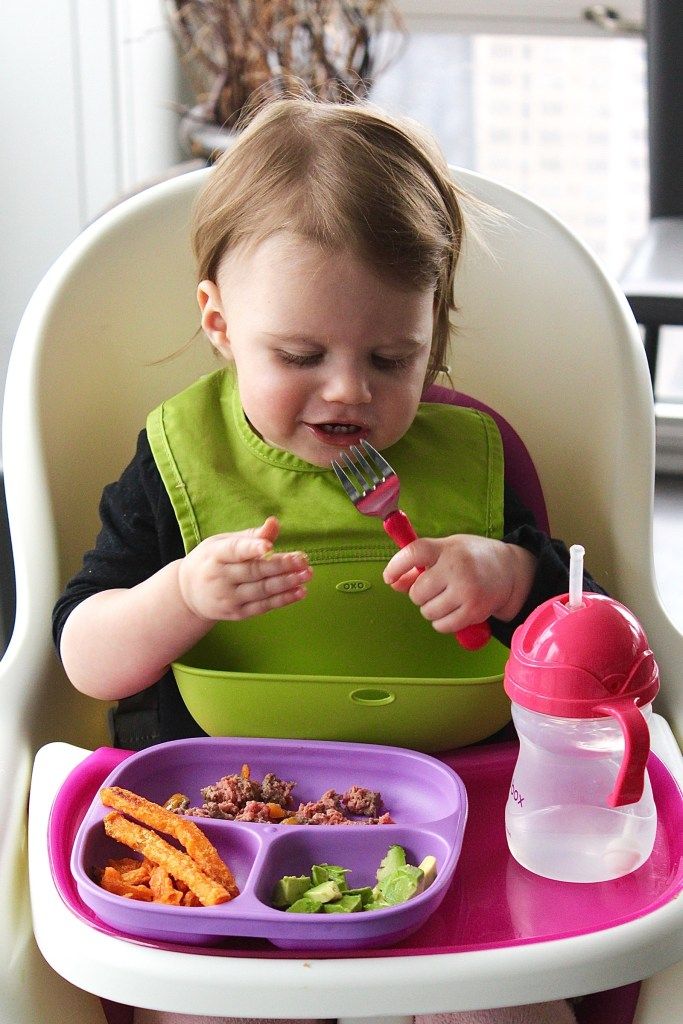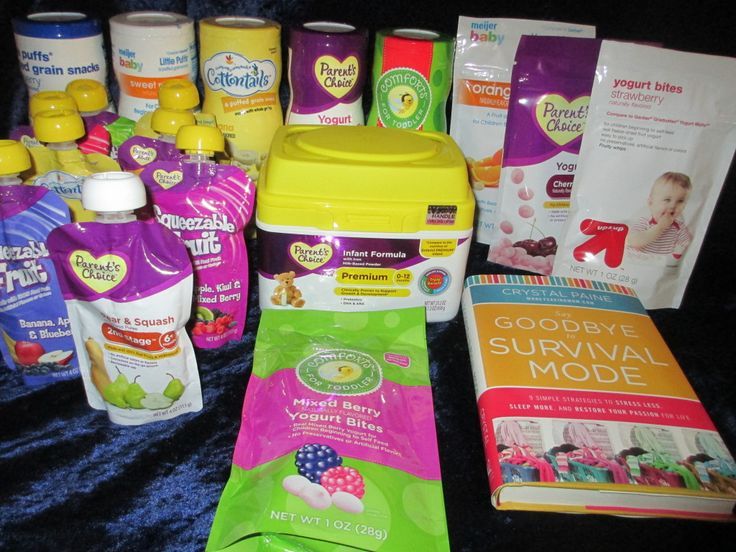How to stop baby feeding too fast
Bottle-feeding problems and solutions | From Tiny Tot to Toddler
Babies can sometimes have trouble feeding. Usually, the problem is temporary. The first thing to do is observe your baby. Try to get a feel for her temperament as well as her feeding and sleeping routine.
Your baby sleeps a lot
If your baby sleeps a lot, you probably wonder whether you should wake her to feed. Knowing what’s best isn’t always easy. You can follow her routine and let her sleep if she
- Wakes up on her own to feed
- Is an active and effective feeder
- Pees at least 6 times and passes at least 3 stools a day
- Is calm and seems satisfied after feeding
- Has regained her birth weight and continues to put on weight
In this case, there is nothing to worry about. Babies each have their own routine that develops over time.
You may need to wake your baby up to feed her if she sleeps a lot.
Photo: Marie-Ève Bolduc
Some babies sleep so much they may skip some feedings, especially during the first 2 to 3 weeks. This means they will have a hard time getting all the milk they need. If your baby sleeps a lot and doesn’t show the signs described above, you need to stimulate her to drink more.
What to do?
- Keep an eye out for signs that she’s sleeping lightly (she’s moving, making sucking motions, or moving her eyes beneath her eyelids) when it will be easier to wake her up.
- Stimulate her: talk to her, massage her back, legs, arms, etc.
- Leave her in an undershirt or diaper: babies drink less when they are warm.
- See a professional if you’re worried or see no improvement after a few days.
Your baby drinks very slowly
Babies can’t always suck effectively at the start. This is more common among babies who were born a few weeks prematurely (between 35 and 37 weeks of pregnancy). Even full-term babies may need a few days or weeks to get the hang of things.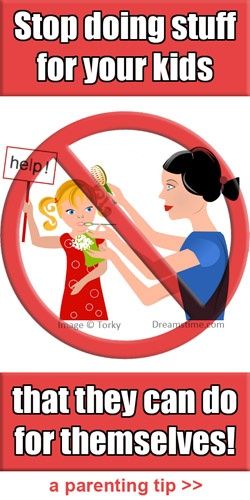 This situation usually improves with time. Be patient: your baby is learning. Some babies, however, will continue to drink slowly even as they get older.
This situation usually improves with time. Be patient: your baby is learning. Some babies, however, will continue to drink slowly even as they get older.
What to do?
- Change to a faster nipple.
- Stimulate your baby as she feeds by rubbing her feet and tickling her back and sides.
- Run your finger under her chin and across her cheeks to stimulate her.
- Change her diaper or change her position for a few minutes.
Your baby often chokes while drinking
If the nipple you are using flows too quickly and your baby has too much milk in her mouth, she may choke (i.e., she swallows noisily, coughs and spits up a little milk).
What to do?
- Change to a slower nipple.
- Take short feeding breaks.
- Avoid laying your baby on her back during feeding since milk will flow into her mouth even when she’s not sucking. Try to feed her in a near-sitting position so that the bottle is tilted only slightly downward (just enough for the nipple to fill with milk and not air).
 Your baby will then be able to drink at her own pace.
Your baby will then be able to drink at her own pace.
Your baby regurgitates a lot
As long as your baby is happy and putting on weight, regurgitation (“spitting up”) is generally nothing to worry about (see Regurgitation).
Some babies drink very fast, and their stomachs expand too quickly. This makes it easier for them to regurgitate, especially if they are very active and start moving around right after feeding.
If milk is coming out of the bottle too quickly, your baby will drink too much just to satisfy her need to suck. If she regurgitates a lot, the nipple on the bottle may be too fast.
What to do?
If your baby is in good spirits and gaining weight, there’s nothing to worry about. You don’t need to do anything.
If regurgitation seems to be bothering her, watch her drink. If necessary, try these strategies:
- Change to a slower nipple.
- Take short feeding breaks.
- Try to burp her more.
- Avoid laying your baby on her back during feeding.
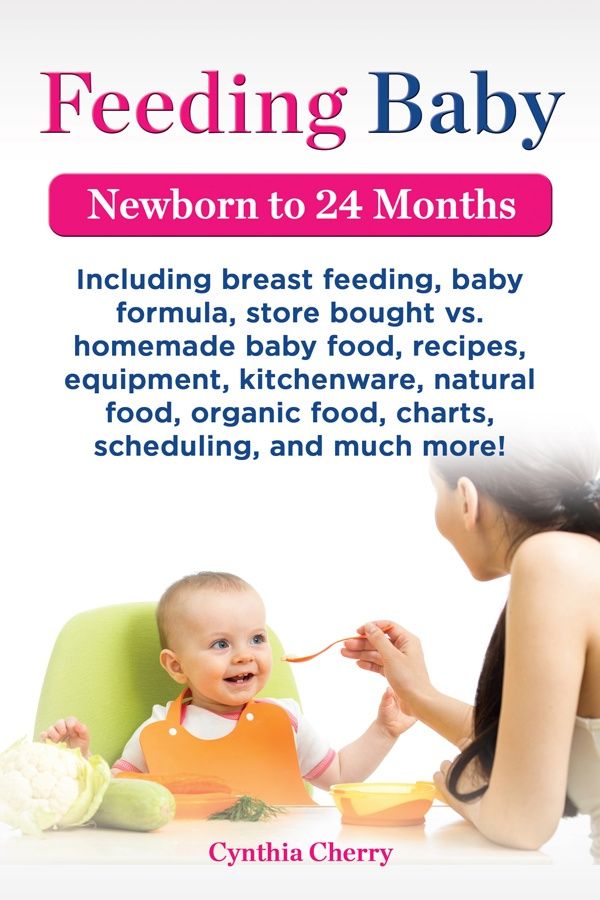 Try to feed her in a near–sitting position so that milk will flow into her mouth more slowly.
Try to feed her in a near–sitting position so that milk will flow into her mouth more slowly. - Try to keep activity to a minimum right after feeding.
It’s best to see a doctor if your baby
- Seems to be in pain
- Projectile vomits several times a day
- Wets fewer diapers
- Isn’t putting on enough weight
Your baby refuses the bottle
Your baby normally breastfeeds, and you want to bottle‑feed her? If she has trouble bottle-feeding or refuses to altogether, see the tips on Combining breast and bottle.
Help! Baby Drinks Milk Too Fast and Chokes
Sharing is caring!
30 shares
- Share
For first-time mothers, the scariest part of feeding a newborn is not knowing what to do when the baby drinks milk too fast and chokes. Read on to learn why do babies choke on milk and how to prevent it.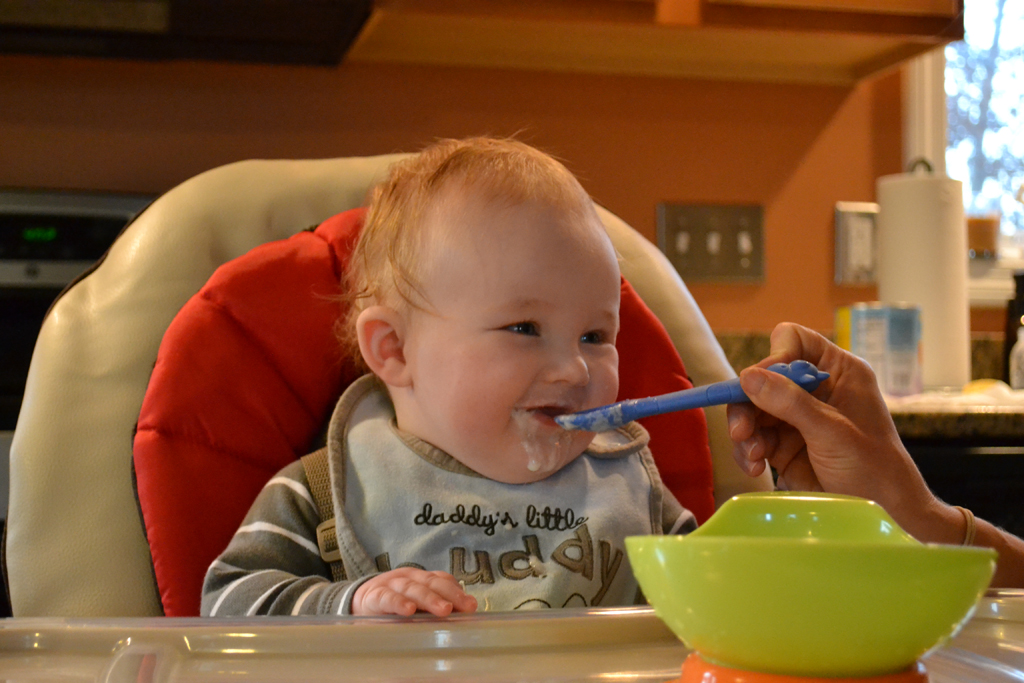
If you are breastfeeding your little one, there is a huge learning curve for you and your baby initially. Even with bottle feeding, there are lots of challenges.
I breastfed both my babies exclusively, and now that I think back, it was hard during the first few days until we figured it out.
Among the other common breastfeeding challenges, I was dealing with oversupply. While most nursing mothers would look for ways to increase their milk supply, I was struggling with oversupply.
It was scary because my baby would start drinking milk too fast to keep up with the supply and choked every time during the initial letdown while breastfeeding. Fortunately, nothing serious happened.
But we had to figure out a way to prevent the choking hazard. Today, I am going to tell you, what you can do when your baby drinks milk too fast and chokes.
Recommended Reading
- 4 Free Online Newborn Care Classes for the first time Parents-to-be
- First Night Home from Hospital and Baby Won’t Sleep:Now What?
- Newborn Won’t Wake up to Eat: Should you wake your Sleepy Baby?
Table Of Contents
- Can Babies Drink Milk too Fast?
- Why do Babies Choke?
- Why do Babies Choke on Breastmilk?
- Oversupply of Milk
- Overactive Letdown
- What to do if Baby Choke on Breastmilk?
- How to Prevent Baby from Choking on Breastmilk?
- Change Breastfeeding Position
- Relieve Pressure
- Check the Latch
- Avoid taking supplements
- Block Feeding
- Why does my Baby Choke while Bottle Feeding?
- What to do when Baby Choking on Milk coming out of Nose?
- Can a Baby choke on Milk in Sleep?
- Baby Drinks Milk Too Fast and Chokes: Conclusion
Pin me for later!
Can Babies Drink Milk too Fast?Some babies do drink milk too fast. The main cause of baby drinking milk too fast is either you are having an over-supply or forceful letdown if you are breastfeeding or the size of the nipple if you are bottle-feeding.
The main cause of baby drinking milk too fast is either you are having an over-supply or forceful letdown if you are breastfeeding or the size of the nipple if you are bottle-feeding.
This results in babies feeding too fast and choking because they can’t keep up with the flow of the milk.
Disclosure: This post contains affiliate links. As an affiliate and amazon associate, I earn commission on qualified purchases at no extra cost to you.
Why do Babies Choke?Babies are new to whole feeding skills. After birth, they can suck and swallow. Choking and coughing happen when they are not able to suck and swallow milk properly.
Most of the time, newborns choke on milk while breastfeeding or bottle-feeding because they are getting too much milk in their mouths.
A gag reflex often protects babies from choking, but because babies’ windpipe is narrow (so could get easily obstructed), choking is a serious hazard for them.
Some babies are more prone to choking than others. Certain health conditions that increase the babies’ risk of choking include,
- Oral structure abnormalities such as Cleft lip or palate
- Developmental delay
- Down syndrome
- Cerebral Palsy
- Gastrointestinal reflux disease
If your baby is frequently choking on milk, you need to see your pediatrician evaluate the feeding difficulties in your baby.
Why do Babies Choke on Breastmilk?Infant feeding requires precise coordination of sucking, swallowing, and breathing. Anything that interferes with the baby’s ability to coordinate this pattern, causes the baby to choke on the milk.
As mentioned earlier, babies choke on breastmilk when they get too much milk in their mouth or try to drink milk too fast.
There are two main reasons why a baby chokes during breastfeeding.
Oversupply of MilkWhen mom has an oversupply of breast milk, it causes milk to come out faster than the baby can swallow.
The overabundance of milk supply can be troubling for both mom and baby. Usually, once your milk supply is regulated after the first few weeks, your breast feels softer after feeding.
But when you have an oversupply of milk, your breast feels heavy even after feeding. Other challenges of having an oversupply of milk are excessive leaking between feedings, sore nipples, clogged milk ducts, and mastitis.
With an oversupply of milk, you may find your baby restless at the breast, coughing, gulping, spitting up milk, and arching away at the initial letdown.
Overactive LetdownOveractive or forceful letdown can also cause choking in babies. In this case, the mother’s milk slows fast that the baby can’t cope with the flow. This results in the baby gulping milk too fast and choking.
Babies also pull away from the breast or refuse the breast as they can’t cope with the flow.
A mother with an overactive letdown may suffer from a sore nipple because of a baby pulling and tugging at the breast.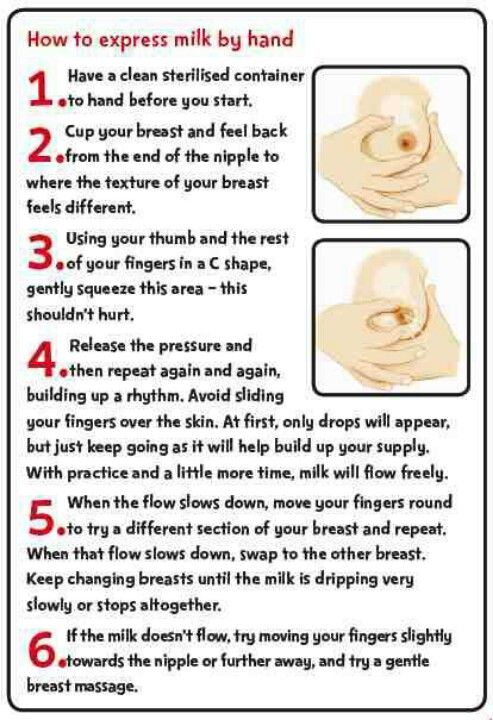 The baby may pinch your nipple to slow the flow of the milk.
The baby may pinch your nipple to slow the flow of the milk.
Need a meal planning template? Sign up for our email list below, and we’ll send you a blank weekly meal planning template + sample breastfeeding meal plan with a week’s worth of breakfast, snacks, lunch, and dinner ideas pdf.
What to do if Baby Choke on Breastmilk?Babies usually pull away from the breast when they can’t keep up with the milk supply. But if your baby begins to choke while breastfeeding, stop the feed, hold the baby upright, and gently pat on his back. Most of the time, propping them will help clear their airways.
But in a rare case, choking will cause the baby to turn blue and lose consciousness which is an emergency and requires you to call 911.
If you are a first-time parent, smart idea is to take an infant CPR class. The CPR class is usually offered by the Red Cross and it is very affordable. CPR class is often included in Newborn care classes if have not taken one yet.
CPR class is often included in Newborn care classes if have not taken one yet.
Here is what to do, if you find your baby choking on milk,
- Lay your baby face down over your forearm and support the baby’s head and neck with your hand. Then give 5 backstrokes down and towards the head
- If the baby is still not okay, turn the baby over and give her 5 chest thrusts.
- Keep repeating 5 backstrokes and 5 chest thrusts
- If that doesn’t help, call 911
For a detailed demonstration, check out this video by Linda Nylander-Housholder, APRN.
How to Prevent Baby from Choking on Breastmilk?Oversupply of breast milk seems to go hand-in-hand with a fast flow, especially during the first letdown. So, to prevent the baby from choking on breastmilk, you need to slow things down a bit.
So, to prevent the baby from choking on breastmilk, you need to slow things down a bit.
There are several ways you can prevent your baby from choking on breastmilk.
Change Breastfeeding PositionFeeding a baby in a side-lying or reclined position can help the baby to gain more control overfeeding. Hold baby in your arm as you recline on your nursing chair and feed works best as milk has to work against gravity and it avoids letdown.
I loved feeding my babies in a side-lying position. In this position, it is easier for babies to let milk dribble out of the mouth and take a break when your milk flow is too fast for them. Make sure to place a towel underneath you to catch excess milk!
You can also feed your baby in a down under position, where you lie on your back and the baby feeds on top of you in the way that baby’s tummy touches your tummy. This position also works against gravity.
The disadvantage of this feeding position is that it can lead to clogged milk ducts if done too often.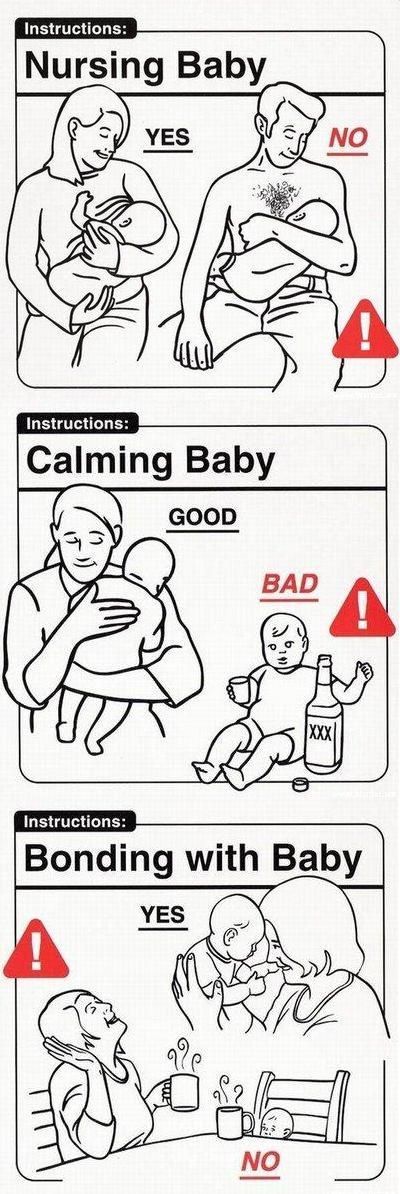
If you feel your breast is too full before feeding, relieve pressure by hand expression or pump. Doing so allows the forceful letdown to happen before the baby latches.
However, you want to express the smallest amount possible (just enough to relieve pressure), because removing more milk gives your body a signal to make more breast milk and thereby worsening the problem.
Check the LatchIf your baby is often choking on breastmilk, check her latch. With shallow latch, too much milk with remain in their mouth rather than going straight down into their throats.
Deep latch allows the baby to better cope with the flow of the milk.
If you think your baby has a latching issue, get her to latch evaluated by a lactation consultant.
Avoid taking supplementsIf you are taking lactation supplements or drinking beverages to boost your milk supply in earlier days, you need to stop. This could create more problems.
This could create more problems.
If you have tried the above tips and your baby is still choking on breastmilk, you need to try block feeding.
With block feeding, you will feed your baby from one breast as many times as your baby asks for it for four hours. You let your other breast become too full. The excessive fullness of this breast signals body to slow down milk production for that breast.
You can alternate breasts every four hours within 24 hours period. If you don’t see any improvement in your milk supply, increase the blockage time from 4 hours to 6 hours.
This technique could get your milk supply to a more manageable level. This method worked best for me to manage the oversupply of milk.
Lose Weight NOT Milk Supply While BreastfeedingWhy does my Baby Choke while Bottle Feeding?Bottle feeding can also cause the baby to chole if not done properly. Baby choking while bottle-feeding is often due to the positioning and size of the nipple.
Baby lying on their back while bottle-feeding will lead to a faster flow of milk that baby can’t handle. Bottle feeding baby in recline position and not tilting the bottom of the bottle higher than the nipple will control the flow of the milk.
When you are bottle-feeding your baby, use a method called ‘paced bottle feeding”. This method allows the baby to remain in control of the milk flow.
This method of bottle feeding calls for holding bottle parallel to the ground. Thereby allowing the baby to work to get the milk from the bottle by sucking and taking a break when needed, as they do at the breast.
For learning more about paced bottle feeding, check out this ARTICLE.
Also, if your baby is drinking milk too fast from the bottle, check the size of the nipple. If the nipple opening is too large, the baby will drink milk too fast and choke. You might want to try a bottle feed your baby with a slow flow nipple.
What to do when Baby Choking on Milk coming out of Nose?It often happens when the baby gets distracted from breastfeeding or bottle feeding with a loud noise or activities going around in a room.
It causes the baby to lose concentration and swallow lots of milk from a single gulp. Resulting in the baby choking on milk and coming out through the nose.
It also happens when the baby takes up a lot of air while feeding and end up spitting it from the mouth or nose when you burp them.
You can prevent this from happening by feeding the baby in an upright position, holding a baby in an upright position after feeding, burping often, and not overfeeding.
Can a Baby choke on Milk in Sleep?It depends on how the baby is sleeping.
Baby sleeping on her back is less likely to choke compared to baby sleeping on their tummy. When the baby is sleeping on the back, their upper respiratory airways are lying over a food pipe (esophagus). So, babies protect their airway from the liquid by swallowing any liquid that is vomited out in sleep.
Also, in the back-lying position, babies can turn their heads and protect their airways if they do vomit in sleep.
Wait… Have you started Baby Memory Book yet??
You may be feeling overwhelmed now with your newborn but trust me before you know it you will be celebrating the first birthday of your bundle of joy. Time flies quickly!! But one way to keep these priceless memories alive is by documenting it in this adorable, gender-neutral Baby book. I promise this 49 pages of the printable Baby journal is nothing too complicated – just fill it out once a week kind of journal with tons of space for baby’s pictures, month-to-month milestones, and birthdays.
Baby Drinks Milk Too Fast and Chokes: ConclusionHere you go, mamas! Now you know what to do when your baby drinks milk too fast and chokes.
So next time when you hear your baby choking during feeding, take the baby off the nipple and hold him upright to help him clear their airway.
While your baby is still learning to suck, swallow, and breathe during feeding, help them by feeding upright and adjusting your milk flow using the above suggestions.
Taking precautions before and during feeding can avoid choking in babies while feeding.
Happy Feeding Mamas!!
References
- American Academy of Pediatrics (AAP). (2011) Choking Prevention and First Aid for Infants and Children. Itasca, Illinois: AAP.
- Reuter S, Moser C, and Baack M. Respiratory distress in the newborn. Pediatr Rev. 2014 Oct;35(10):417-29. doi: 10.1542/pir.35-10-417.
Related Posts
Night feeding weaning
Weaning from night feeds and uninterrupted sleep throughout the night is the dream of many new parents. However, kids have completely different plans in this regard. Many of them continue to wake up to eat or drink, even at 3 years old. We understand why this happens and whether it is possible to wean a child to eat at night.
Why night feedings are needed
Night feedings are not a whim, but a necessity for the normal development of the baby. First of all, they are needed by the child, and then by the mother. The main reasons why a child needs to wake up at night include the following:
First of all, they are needed by the child, and then by the mother. The main reasons why a child needs to wake up at night include the following:
- physiological immaturity. Compared to adults, children's metabolism is very fast. This is due to the active growth and development of the baby. In addition, both formula and breast milk are absorbed very quickly - on average, in 2-4 hours.
- Features of lactation. The amount of milk in the mother is regulated precisely by feeding at night, since the hormone prolactin is actively produced at this time of day. If a woman wants to breastfeed a baby, at least one nightly application is necessary.
- evolutionary mechanisms. According to one hypothesis, night waking is an evolutionary mechanism that protects the baby from sudden infant death syndrome.
- Compensatory. If the mother removes daytime feeds, the baby may begin to wake up more often at night to compensate for the lack of daytime feedings.
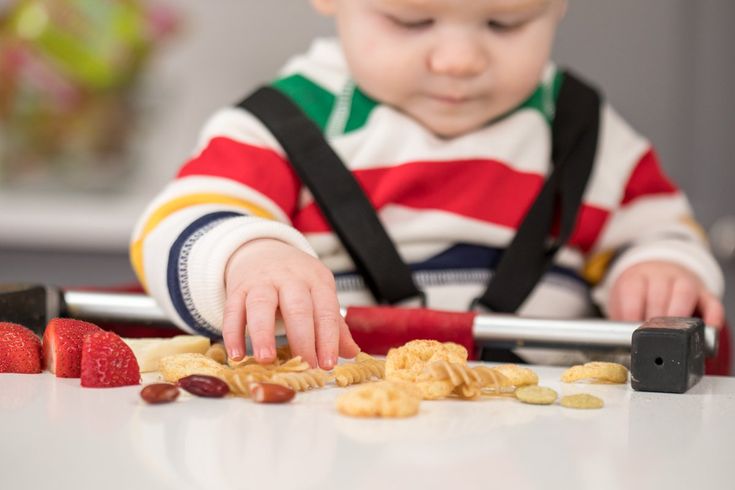 This is more relevant for children on breastfeeding one year old and older.
This is more relevant for children on breastfeeding one year old and older.
If night waking does not cause inconvenience to mother and baby, then there is no need to specially clean them. You can wait until the baby's nervous system matures and he refuses such feedings on his own.
� When the baby is ready to leave night feeds
The ability to sleep through the night without waking up for a night snack develops as the baby's nervous and digestive systems mature. Attempts to reduce nighttime feedings before this point can end in failure, exhaust the mother and cause sleepless nights for the whole family.
The following terms are considered physiological:
| Type of feeding | When do night feeds end? |
| breast | A breastfed infant stops eating at night around 18–24 months of age. |
| mixed | Depends on what kind of food (formula or breast milk) prevails in the baby's diet. |
| artificial | Formula is considered a heavier product, so formula-fed babies may stop eating at night as early as 9-12 months. |
Some babies, whether breastfed or formula-fed or mixed-fed, may start sleeping without waking up for nighttime feeds as early as 6 months. If the mother has enough milk, and the baby is gaining weight normally, you do not need to specifically wake the baby to feed him.
Important! Night feedings are the key to successful lactation. If the baby of the first months of life does not wake up at night, you need to offer the breast to a sleepy baby. This stimulates the production of milk and will help to avoid problems with its quantity.
How to stop feeding your baby at night on EW
It is much easier to remove night feedings from a baby on artificial feeding than on breastfeeding. This is due to the fact that a baby on IV immediately gets used to the schedule, and with a greater nutritional value of the mixture, and less difficulty with its replacement.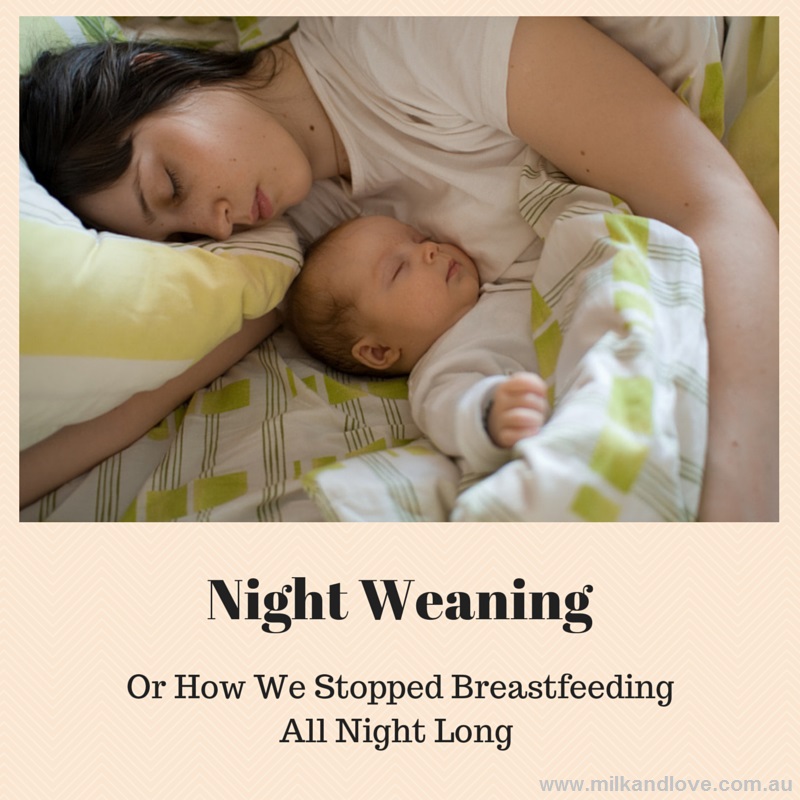 On average, babies who eat formula wake up only 2-3 times per night, so it will not be difficult to refuse such a number of feedings.
On average, babies who eat formula wake up only 2-3 times per night, so it will not be difficult to refuse such a number of feedings.
However, weaning from nighttime eating should begin no earlier than 6 months. By this age, the brain of children in general is ready to sleep without awakening from 6 to 8 hours. What can be done to reduce the number of feedings?
- If the mother practices co-sleeping, you should not combine moving the child to the crib and accustoming to uninterrupted sleep at night. It is better to reduce the number of wakings first, and then move the baby to your bed.
- If the baby has entered a clear mode, you can gradually increase the intervals between night feedings. You can move them no more than half an hour at a time.
- When the baby asks for food at night, offer him water first and only then formula. Perhaps he wakes up from thirst, not from hunger. This approach will help increase the intervals between feedings.
- After a year, a hearty dinner helps to improve sleep. Feed your baby porridge or porridge with meat 2-3 hours before bedtime. Such food is digested for a long time and will help the baby sleep better.
It is important to remember that the reduction in feeding should not be accompanied by tears and tantrums of the baby. Restless night sleep and discomfort will cause the baby to wake up more often.
Weaning from night feeds should not be a problem for the baby and other family members. Our doctors will remotely advise on the features of children's sleep and help you choose the right moment for weaning from night feedings.
How to remove night feedings with breastfeeding
The regimen of children who are exclusively breastfed is different from the regimen of children who are fully or partially artificially fed. For children on IV, night feedings, rather, are a consequence of the characteristics of the child's psyche and metabolism. For children on breastfeeding, they are rather a necessity.
For children on breastfeeding, they are rather a necessity.
It is at night that the hormone prolactin is produced, which regulates the production of milk in the mother. If you do not feed your baby at night or leave such feedings too early, this will directly affect the amount of milk and, as a result, the development and growth of the baby.
It is believed that during weaning, night feedings are the last to stop. However, you can reduce the number of nightly attachments before the mother decides to complete breastfeeding. What can be done for this?
- If the mother practices co-sleeping, moving the baby to her crib will help reduce the number of nightly attachments. At first, you can put a baby bed with the side removed to the parent one and shift the baby after he falls asleep. Then the side rises, and the bed moves away.
- After a year, giving up or reducing the number of night feedings helps a hearty dinner and a bowl of water instead of breastfeeding at night.
 You can also give kefir or a mixture at night.
You can also give kefir or a mixture at night. - The number of nightly attachments is also affected by daytime feeding. If the mother cancels too many daytime attachments and severely restricts the baby, he can compensate for the lack at night. Therefore, if the mother does not plan to completely cancel breastfeeding, it is better to allow the toddler to apply during the day.
If the mother does not plan to stop breastfeeding in the near future, then it is better to postpone weaning from night feedings to a more suitable time for this and wait for the moment when the baby himself refuses nightly feedings. After a year, you can teach the child self-attachment. In this case, neither the baby nor the mother practically wakes up at night.
Read also What kind of breastfeeding is considered prolonged
FAQ
How many times does the child eat at night?
+
The number of night feedings depends on the age and type of feeding. Formula-fed babies wake up 2-3 times a night on average. Breastfed babies may wake up more often.
Formula-fed babies wake up 2-3 times a night on average. Breastfed babies may wake up more often.
When do children wake up at night?
+
The baby's brain is not adapted to a long night's sleep. This is believed to be an evolutionary mechanism that protects infants from sudden infant death syndrome. The child begins to sleep more than 6 hours in a row after a year, and all night - closer to three.
What can I do to stop my child from eating at night?
+
You can reduce the number of nightly feedings by moving the baby to a separate bed, starting to feed a denser dinner and gradually increasing the intervals between nightly attachments.
When should a baby be weaned?
+
The World Health Organization recommends breastfeeding or formula feeding until two years of age if it is comfortable for both mother and baby.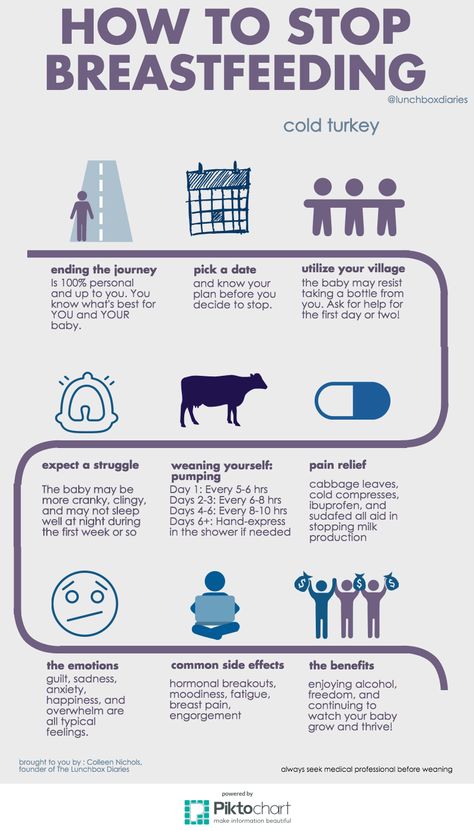 If a woman decides to wean the baby from the breast earlier, you need to replace the breast mixture.
If a woman decides to wean the baby from the breast earlier, you need to replace the breast mixture.
Is it necessary to wean the baby from the breast if he does not sleep well?
+
Weaning does not guarantee that the baby will sleep through the night. For this to happen, his nervous system must mature. Weaning, especially through tears, can cause restless sleep and frequent waking.
Expert opinion
Night feedings are necessary for the normal growth and development of the child. On average, children self-refuse by the age of 9-24 months. However, this does not mean that the child stops waking up at night. The brain fully matures for this only at the age of 3 years. To wean a child from waking up at night, you need to feed him more densely before bedtime, move him to his crib and offer water at night instead of breast or formula.
We publish only verified information
Article author
Pruzhinin Mark Yulievich pediatrician
Experience 30 years
Consultations 1572
Articles 104
An experienced pediatrician with extensive experience and clinical experience in various medical organizations in the field of general pediatrics, resuscitation and anesthesiology and neuroinfection.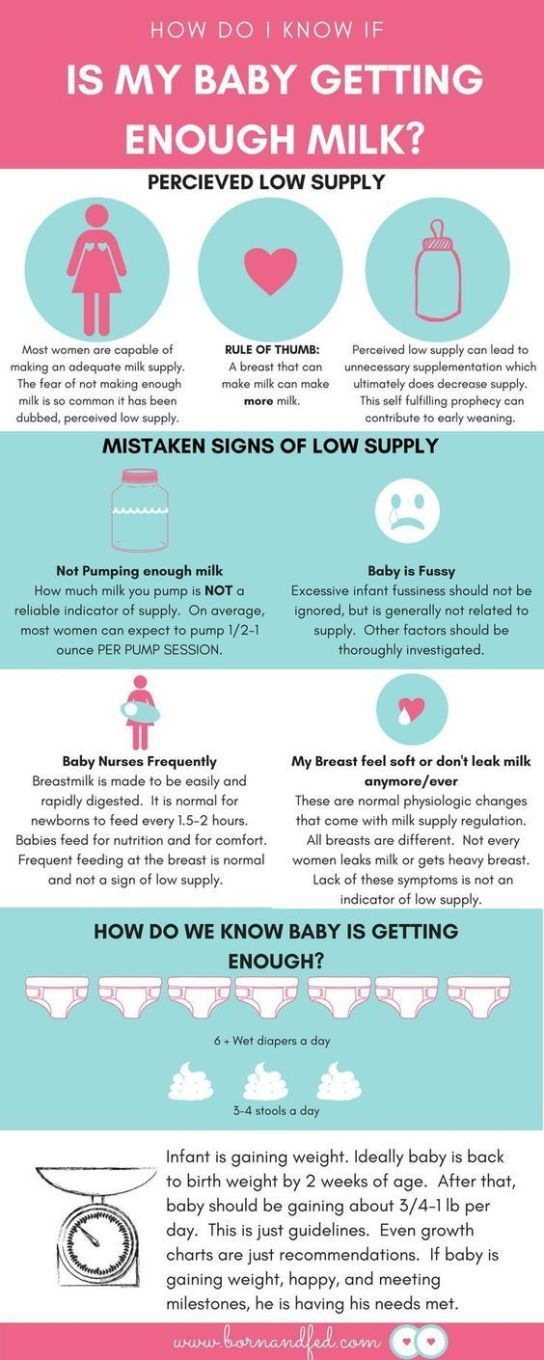 Works with leading experts, attends international and Russian conferences.
Works with leading experts, attends international and Russian conferences. Termination of breastfeeding | Stopping breastfeeding
When is it time to stop breastfeeding and what is the best way to do it? Read our article for useful practical tips on weaning.
Share this information
How long should breastfeeding continue? Three months? Six? Year? Or maybe a few years?
The World Health Organization (WHO) and other authorities recommend that infants be exclusively breastfed for the first six months and then continue to be breastfed along with other foods (complementary foods) for at least two years. 1
The fact is that breast milk is not just food. It is a natural sedative if the child is anxious or tired. In addition, milk contains immune-boosting components, the amount of which increases dramatically when the baby gets sick. 2
According to anthropologists, the natural age for a person to stop breastfeeding is even more than two years. Given factors such as tooth development, body weight, comparison with other primates, and historical evidence, some scientists believe that breastfeeding may last up to two to four years. A number of researchers even believe that our ancestors breastfed children up to six or seven years of age. 3
Given factors such as tooth development, body weight, comparison with other primates, and historical evidence, some scientists believe that breastfeeding may last up to two to four years. A number of researchers even believe that our ancestors breastfed children up to six or seven years of age. 3
Today, more than 60% of mothers in developed countries start giving their babies formula or complementary foods before six months of age, 4 although WHO does not recommend this.
When is it time to stop breastfeeding?
Weaning means that you gradually stop breastfeeding your baby. Ideally, the first step in this process is the gradual introduction of complementary foods, starting at about six months of age. In this case, breastfeeding continues. The weaning process continues until the mother's milk has been completely replaced by other foods and drinks.
“After six months, the baby needs higher doses of certain nutrients, such as iron, zinc, vitamins B and D, that he cannot get from breast milk or from his own reserves,” says Sarah Beeson, health visitor from Great Britain.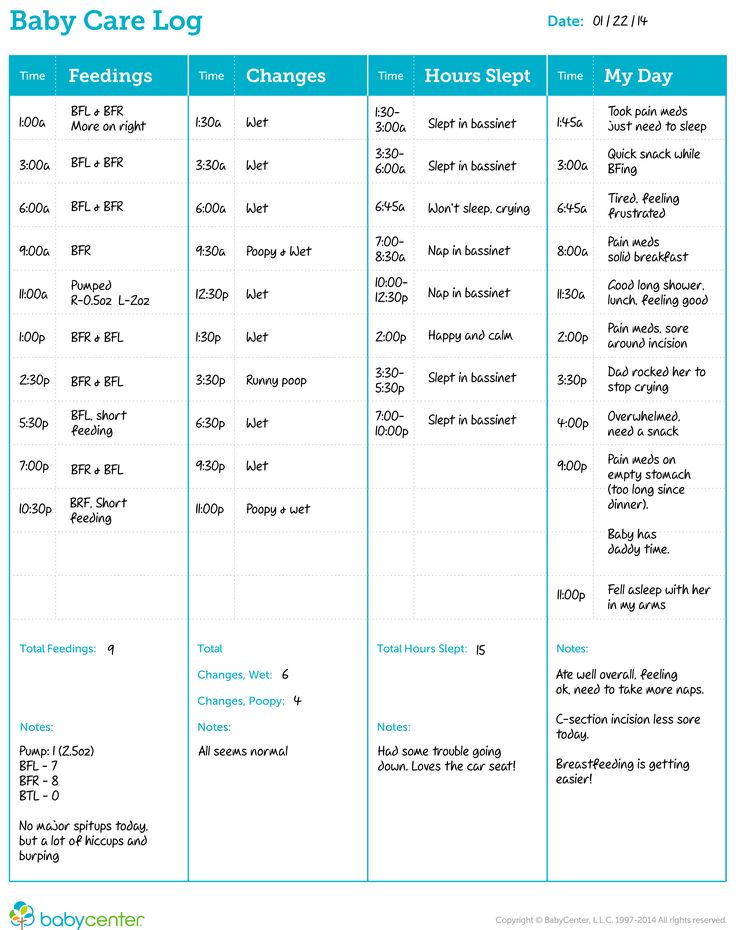
“But solid food should at first only supplement the main diet with breast milk and gradually replace it. Mother's milk remains the main source of nutrition for the baby for many months to come.”
On average, a seven-month-old baby gets 93% of its calories from breast milk. And even between the 11th and 16th months, milk provides him with about half of the daily calorie intake. 5
“Sometimes moms think that breastmilk is not so important once the baby has started solid foods, but in reality, no matter how many months old the baby is, there is nothing better for him than your milk,” continues Sarah.
In fact, the process of finishing breastfeeding can take as long as mother and baby want. “When to stop breastfeeding is up to you,” says Sarah. The only thing that matters is what you think is right for you and your child.”
How to wean
Whenever you decide to start weaning your baby, it's best to do it gradually. An abrupt cessation of breastfeeding can lead to lactostasis, blockage of the milk ducts and mastitis, and in a child such a sudden change can adversely affect the state of the digestive and immune systems.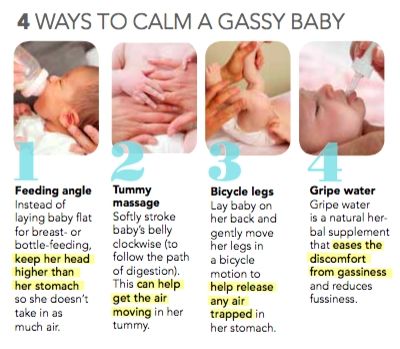 In addition, it will be difficult for both of you psychologically.
In addition, it will be difficult for both of you psychologically.
When should I stop breastfeeding?
Sometimes mothers mistakenly believe that it is time to stop breastfeeding, when in fact there is no reason to. If you're returning to work, breastfeeding can be a great way to stay close to your baby during this difficult time for both of you. You can express milk at work, and morning and evening feeding sessions will give you the opportunity to spend time alone with your baby. If you need to leave without your baby, you can also express milk and bring or send it home.
If you get sick, this is not always a reason to stop breastfeeding. Read our advice in the article on breastfeeding when sick and consult with your healthcare professional.
Weaning up to six months
If you cannot continue breastfeeding until six months and want to try weaning your baby, start by replacing one feeding a day with a bottle of formula.
“It's best to start with midday feedings. Babies are very alert and able to smell breast milk nearby, so ask your partner or relative to give your baby a bottle when you're in the other room,” Sarah advises.
Babies are very alert and able to smell breast milk nearby, so ask your partner or relative to give your baby a bottle when you're in the other room,” Sarah advises.
“Be hygienic when preparing food. Be prepared for the fact that the baby will take fewer servings of expressed milk per day than if he was fed directly from the breast. Don't make him eat more milk than he wants."
You will probably feel that your breasts are fuller and more tender. This is due to the fact that your body is rebuilding to produce less milk. If this creates discomfort, try expressing some milk—just enough to relieve the discomfort without stimulating extra production.
When your body adjusts to the new volume - usually after a few days - replace with formula for one more meal a day. Continue this until you have changed all feedings and your baby is completely weaned.
“I had complications after my first birth, as a result I lost a lot of weight very quickly, and besides, I developed mastitis. Lactation was very weak, and at three months I was forced to stop breastfeeding,” recalls Jennifer, a mother of two from the UK, “I gradually replaced one feeding, so physically it was easy, but mentally it was hard for me.”
Lactation was very weak, and at three months I was forced to stop breastfeeding,” recalls Jennifer, a mother of two from the UK, “I gradually replaced one feeding, so physically it was easy, but mentally it was hard for me.”
If you want to maintain closeness with your baby and all the health benefits of breastfeeding, but still need to cut down on breastfeeding, try partial weaning, replacing only a few feeds a day with formula.
Weaning after six months
Once your baby starts eating solid foods (about six months old), you will notice that breastfeeding naturally occurs less and less. For a year, it can be reduced to just a couple of times a day, and feedings will be replaced by full meals and healthy snacks.
Anyway, if you intend to continue to reduce breastfeeding, do it gradually, replacing one feeding at a time. Use formula milk if your baby is under 12 months old. With cow's milk, you should wait at least up to a year.
“When I decided to wean my son, I breastfed him three times a day and gave him other foods three times plus light snacks.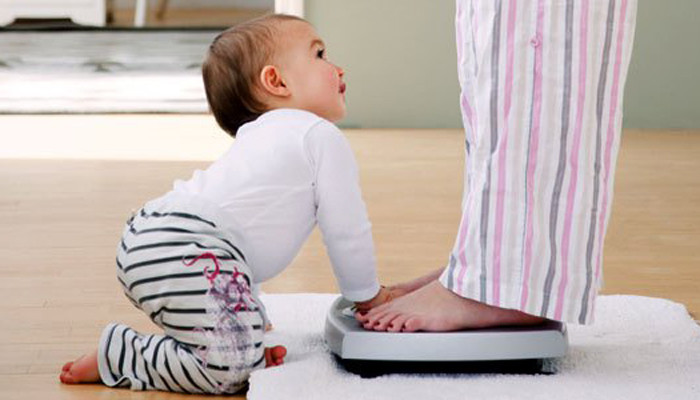 Gradually, I replaced all breastfeedings with formula. By 11 months, we only had one nighttime breastfeed left,” says Ruth, a UK mom.
Gradually, I replaced all breastfeedings with formula. By 11 months, we only had one nighttime breastfeed left,” says Ruth, a UK mom.
There are various ways to distract a child from changes in his diet. Some mothers suggest that instead of breastfeeding something to drink and eat together to maintain a sense of closeness. You can also change your daily routine, play your favorite game, or replace feeding with caresses - from you or from your partner. Some children take longer to get used to the new food, but in the end everything falls into place. If you are having difficulty weaning, ask your healthcare provider for advice.
Ending breastfeeding naturally
Ending breastfeeding can be guided by the baby's wishes. This is called baby-initiated weaning, or the natural termination of breastfeeding. Such a process is likely to be long and gradual. Month after month, feeding sessions will become shorter and less frequent, until one day the child completely loses interest in the breast.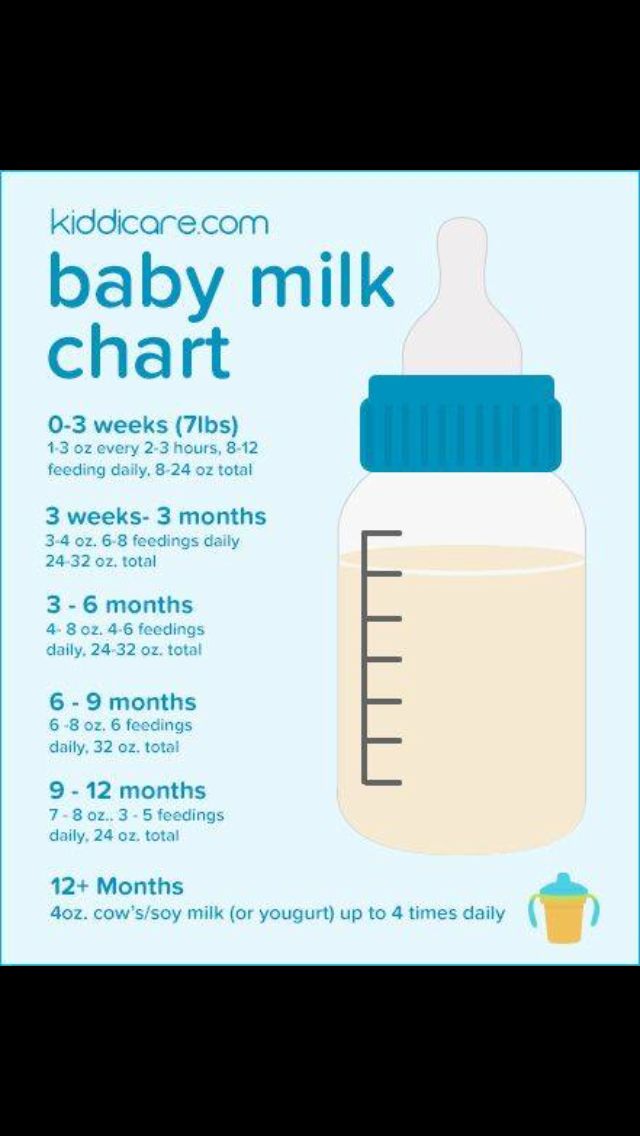
“My daughter stopped breastfeeding on her own when she was four years old,” says Sarah, a mother from the UK. And once, when we were on vacation, she seemed to just forget about her breasts. Now, six months later, she sometimes still asks for breasts, but she already knows that there is no milk there.
You will have a huge amount of time for the body to adapt, so there should be no discomfort or swelling of the breast. However, you may find it difficult emotionally, so spend more time petting and bonding with your baby.
“Child-initiated termination of breastfeeding was right for me because I never gave my son formula or a bottle. I didn’t want to abruptly stop feeding and refuse him,” recalls Kelly, a mother from the UK, “He himself lost interest in breasts at the age of two and a half years. For us, it was the best scenario, although emotionally it was not very easy for me.”
What if you need to stop breastfeeding quickly?
It is best not to stop breastfeeding abruptly, but sometimes it is necessary for medical reasons or because you cannot be near your baby.
If you have been breastfeeding your baby up to this point, you will most likely have to express your milk to avoid breast swelling. Some mothers prefer to use a breast pump for this, others find it easier to express milk manually. You only need to pump a little, just to eliminate the discomfort, otherwise your body will take it as a signal to produce more milk.
At first, the breasts may swell and become tender, but this will pass. Breast milk contains a so-called feedback lactation inhibitor. When breastfeeding is stopped, this inhibitor tells your body to slow down milk production, but it can take days or even weeks for your breasts to rebuild.
Certain medications can relieve pain and should be discussed with your doctor. Always follow your pharmacist's instructions or directions, and consult your healthcare professional before taking any medication.
“I had to abruptly stop breastfeeding when my daughter was eight months old because she had to take strong painkillers,” says Peggy, a mother from Switzerland. “It was very difficult because the baby was constantly looking for a breast and crying. I held her tightly to me as I gave her a bottle. This calmed her, and after a month everything was all right.
“It was very difficult because the baby was constantly looking for a breast and crying. I held her tightly to me as I gave her a bottle. This calmed her, and after a month everything was all right.
Can I continue breastfeeding if I want to get pregnant again?
Breastfeeding is a natural contraceptive. However, this method is not the most reliable, especially after six months or if you are not exclusively breastfeeding. This means that you can get pregnant even while you are breastfeeding.
Pregnant and breastfeeding mothers sometimes receive conflicting advice about whether to stop breastfeeding. Consistent feeding of two children of different ages is of course possible, and with the advent of the second baby, your body will produce the kind of milk that both of them need.
It is not uncommon for an older child to refuse to breastfeed or skip feedings if the mother is pregnant. This may be due to changes in milk composition that occur during pregnancy. Milk can change the taste and become less sweet. 6 If your baby is under one year of age when he starts to stop breastfeeding, make sure he continues to gain weight.
Milk can change the taste and become less sweet. 6 If your baby is under one year of age when he starts to stop breastfeeding, make sure he continues to gain weight.
Talk to your doctor if you want to continue breastfeeding during pregnancy, but have had a preterm birth or miscarriage, or have any bleeding in the past.
If you need medical help to conceive, certain drugs and procedures may not be suitable while you are breastfeeding. Discuss all possible options before deciding to stop breastfeeding.
And finally...
Whenever you decide to end breastfeeding, and whatever method you choose to do so, be gentle with yourself and your baby. This is a huge change for both of you physically, hormonally, and emotionally, so proceed thoughtfully and carefully.
“Although my body responded normally to stopping breastfeeding, it was psychologically difficult for me. The thing that united us for so long is over, - Jane, a mother of two children from the USA, shares her impressions, - I worked long hours, five days a week, and breastfeeding made me feel that I occupy a special place in the lives of children.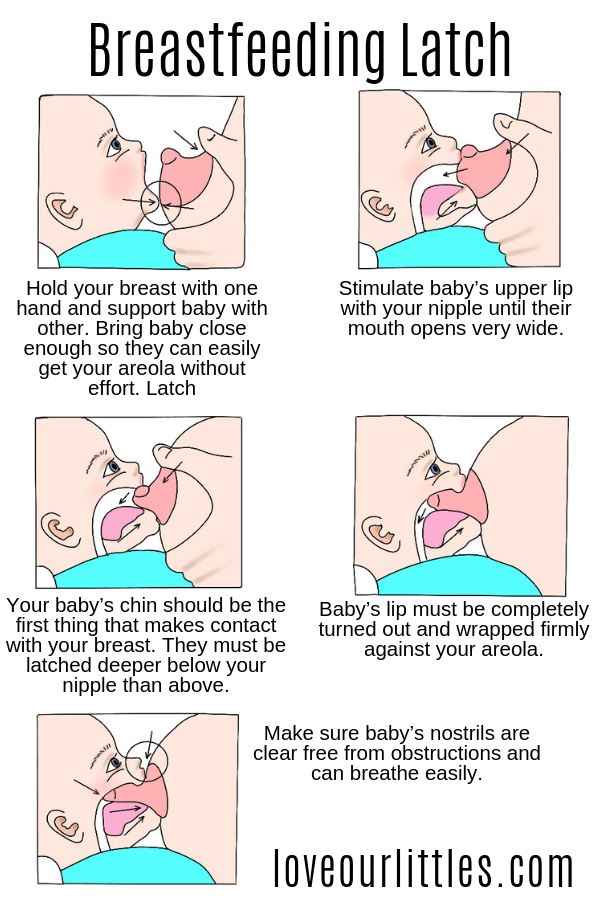 But when it stopped, we soon found other ways to be together.”
But when it stopped, we soon found other ways to be together.”
Literature
1 World Health Organization. [Internet] Health Topics: Breastfeeding: 2018 [Accessed: 02/08/2018]. Available from : http://www.who.int/topics/breastfeeding/en - World Health Organization. "Health Issues: Breastfeeding" [Internet]. Geneva, Switzerland: WHO; 2018 [Visit 02/08/2018]. Article linked: http://www.who.int/topics/breastfeeding/e
2 Hassiotou et al. Maternal and infant infections stimulate a rapid leukocyte response in breastmilk. Clin Transl Immunology. 2013;2(4): e 3. - Hassiot F. et al., "Infectious diseases of the mother and child stimulate a rapid leukocyte reaction in breast milk." Clean Transl Immunology. 2013;2(4):e3.
3 Dettwyler KA. When to wean: biological versus cultural perspectives.Clin Obstet Gynecol .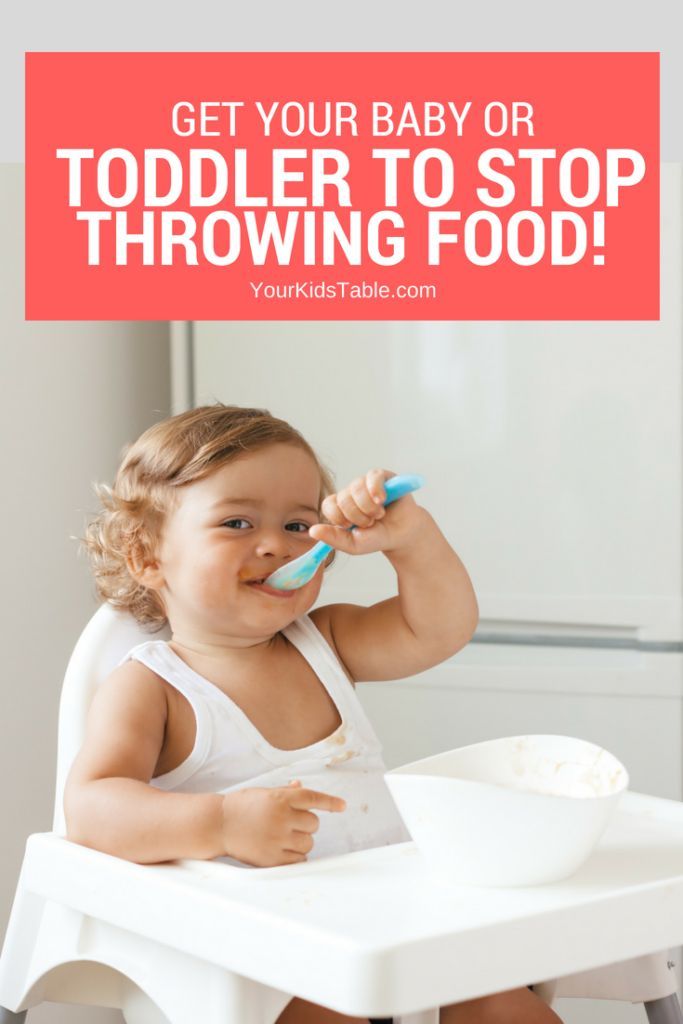 2004; 47(3)712-723. - Dettwiler KA, "Time to wean: weaning from a biological and cultural point of view". Klin Obstet Ginekol (Clinical obstetrics and gynecology). 2004; 47(3):712-723.
2004; 47(3)712-723. - Dettwiler KA, "Time to wean: weaning from a biological and cultural point of view". Klin Obstet Ginekol (Clinical obstetrics and gynecology). 2004; 47(3):712-723.
4 Victora CG Breastfeeding in the 21st century: epidemiology, mechanisms, and lifelong effect. Lancet. 2016;387(10017):475-490. - Victor S.J. et al., "Breastfeeding in the 21st century: epidemiology, mechanisms and long-term effects". Lancet 2016;387(10017):475-490.
5 Dewey KG et al. Breast milk volume and composition during late lactation (7-20 months). J Pediatr Gastroenterol Nutr . 1984;3(5):713-720. — Dewey C.G. et al., "Amount and composition of breast milk in late lactation (7-20 months)". F Pediatrician Gastroenterol Nutr. 1984;3(5):713-720.
6 Prosser CG et al. Mammary gland function during gradual weaning and early gestation in women.

 Age can vary from 9 to 24 months.
Age can vary from 9 to 24 months. 







